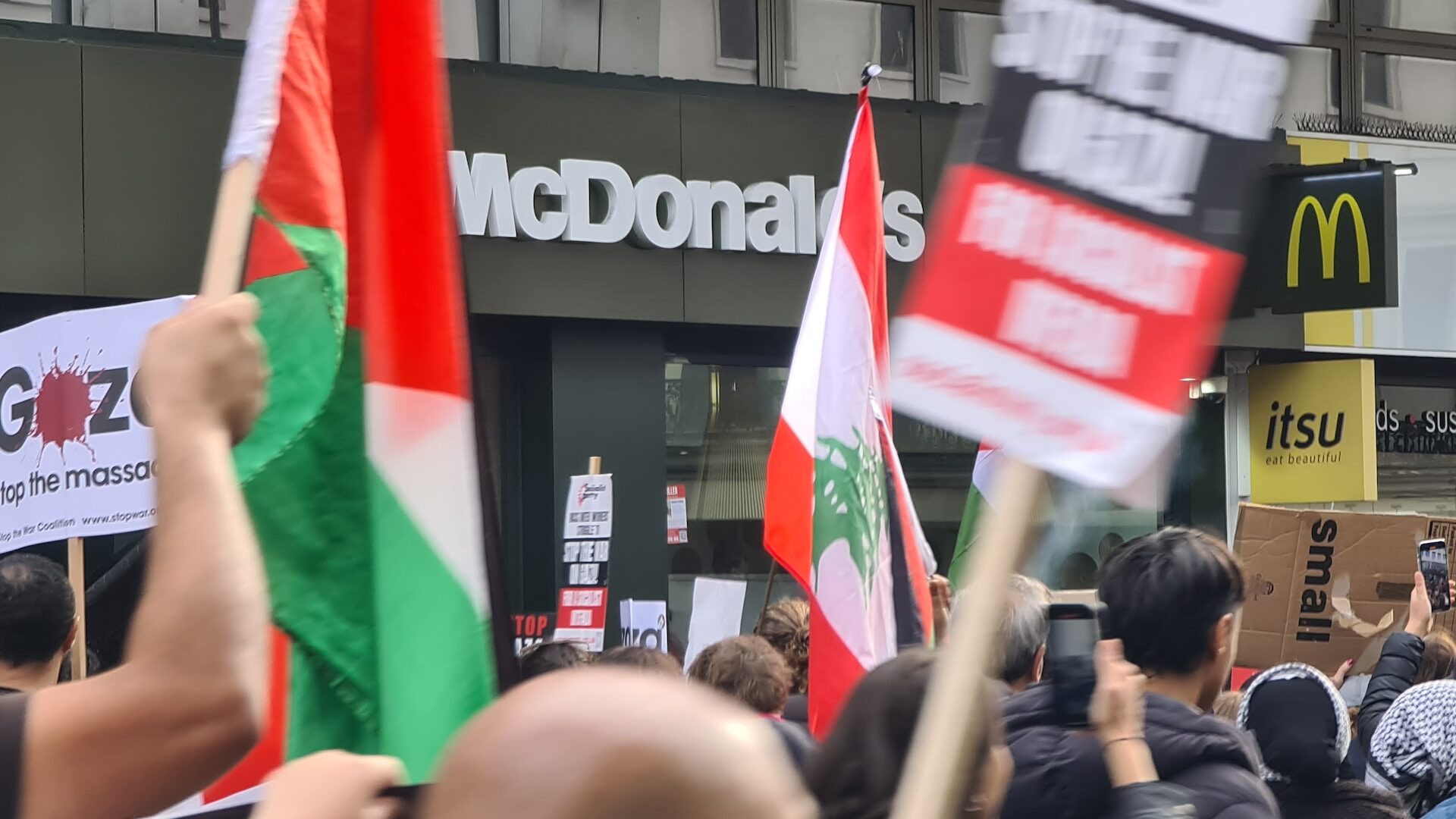Playing the Boycott Game
Al-Masry Al-Youm, Egypt, November 11
In light of the ongoing conflict in Gaza, several Arab nations, including our own, have witnessed an upsurge in calls to boycott companies that openly endorse Israel. These calls have now encompassed several renowned global brands, which hold immense popularity in Arab markets. The companies in question have publicly voiced their support for the Zionist entity, particularly through their operations in Israel. A particularly notable example was the announcement made by one such branch, which boasted its efforts to distribute thousands of complimentary meals to Israeli army personnel. The boycott movement, spearheaded by tech-savvy young individuals, has rapidly gained momentum through dedicated websites, smartphone apps, and even street flyers. These materials explicitly identify products to avoid, accompanied by gruesome images of blood-covered children alongside a jarring slogan that asks, “Did you kill a Palestinian today?” As the boycott fervor increases, social media platforms showcase pictures of deserted branches and stores of these brands in multiple Arab nations. In response, certain brands have taken a proactive stance by launching donation campaigns for the Palestinians. Their aim is to distance themselves from the officially declared position of their parent companies or other branches operating within Israel. One notable example is a prominent international restaurant chain, which asserted in a statement that the behavior of their Israeli franchisees was an isolated incident and clarified that they do not provide financial support to any governmental or partisan entities involved in the conflict. The crucial question at hand is whether the so-called “boycott weapon” truly hits its intended target—that is, international companies supporting Israel—or if it inadvertently harms our own interests. It is my belief that a lack of economic understanding prevents many from providing an accurate answer. In reality, a majority of these brands are Egyptian-owned and provide employment opportunities for Egyptians. Furthermore, the parent companies that hold these brands derive minimal benefit from the mere licensing rights. Therefore, the extent of damage inflicted upon these international entities will hardly surpass a negligible percentage, one that can be counted on the fingers of a single hand. Henceforth, the General Federation of Egyptian Chambers of Commerce has issued a warning regarding the potential ramifications of these boycott initiatives on the Egyptian economy. In their statement, they stress that such campaigns will not affect the parent companies, as local branches operate under the commercial franchise system. Therefore, the impact of the boycott will solely be felt by Egyptian investors and workers. A concerning development arises as certain product owners exploit this boycott to promote their goods as entirely Egyptian-made. One noteworthy example is an established Egyptian water company that previously had limited popularity. However, in recent times, it has gained substantial traction as an alternative to two prominent water brands. This opportunistic behavior raises doubts about their sincerity of intentions. In my perspective, this seems to be an economic ploy orchestrated by Egyptian companies and capital that possess the rights to utilize international brands. However, the ones who bear the greatest burden are the ordinary Egyptians employed within these boycotted establishments. —Abdel Latif El Menawy (translated by Asaf Zilberfarb)
This holiday season, give to:
Truth and understanding
The Media Line's intrepid correspondents are in Israel, Gaza, Lebanon, Syria and Pakistan providing first-person reporting.
They all said they cover it.
We see it.
We report with just one agenda: the truth.



